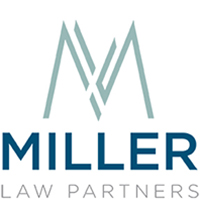EMPLOYERS:
Are your I-9 and W-4 forms up to date?
Form I-9
On Jan. 31, 2020, the U.S. Citizen and Immigration Services (USCIS) announced a new version of Form I-9, Employment Eligibility Verification, effective the same date. The new I-9 contains changes to the form and its instructions. Employers are required to begin using the updated form by April 30, 2020, however, we recommend implementing the new form for all new hires going forward.
The new 2020 Form I-9 is available here.
Form W-4
On December 5, 2019, the IRS released a new version of Form W-4, re-titled "Employee's Withholding Certificate", effective January 1, 2020. The new version of the form also contains important changes to the form and its instructions. Employers should be sure to begin using the new 2020 W-4 for all new employees, and for all adjustments to the W-4 made by current employees, after January 1, 2020.
The new 2020 Form W-4 is available here.
Employers should be sure to update their procedures to include the implementation of all new I-9 and W-4 documentation, consistent with the latest up-to-date versions.
We work tirelessly with our clients to proactively determine, before an issue arises, where they are vulnerable. Please contact us if you have any questions regarding your company’s readiness for the new year.
Every New Year seems to bring with it many new legal requirements for California employers, and this year is no different as Governor Gavin Newsom has signed numerous pro-employee bills into law that will impact all California employers starting January 1, 2020. The following is a rundown of some of the most notable new laws.
AB 5: Independent Contractor ABC Test
This law codifies and expands the reach of the “ABC” test set out in the California Supreme Court’s decision in Dynamex West, Inc. v Superior Court and makes the “ABC” test applicable to the California Wage Orders, the Unemployment Insurance Code and the California Labor Code. Under the ABC test, a worker will be considered an employee unless the hiring entity can establish that all of the three following conditions are satisfied:
(A) The worker is free from the control and direction of the hiring entity in connection with the performance of the work, both under the contract for the performance of the work and in fact;
(B) The worker performs work that is outside the usual course of the hiring entity’s business; and
(C) The worker is customarily engaged in an independently established trade, occupation, or business of the same nature as the work performed.
Subject to specific exceptions, failure to satisfy any of the three factors of the ABC test results in a finding that the worker is an employee and not an independent contractor.
In light of AB 5, it is imperative that employers consult with legal counsel to evaluate the continued use of independent contractors as part of their workforce.
AB 9: The Stop Harassment and Reporting Extension (“SHARE”) Act
This law extends the deadline to file an allegation of unlawful workplace harassment, discrimination or civil rights-related retaliation under the Fair Employment and Housing Act (FEHA) from one year to three years.
This new law will result in employers having to defend older claims. Now, more than ever, employers must ensure that timely and accurate documentation is maintained in order to preserve evidence in cases where memories have faded over time.
AB 51: Limitations on Arbitration Agreement
AB 51 prohibits employers from requiring employees or applicants to waive any right, forum or procedure for a violation of the Fair Employment and Housing Act (FEHA) or the Labor Code as a condition of employment and effectively bans mandatory arbitration agreements. The law also prohibits retaliation against an employee who refuses to sign an arbitration agreement.
Notably, AB 51 does not apply to negotiated severance agreements or post-dispute settlement agreements and does not invalidate any written arbitration agreement that is otherwise enforceable under the Federal Arbitration Act (FAA).
It also remains to be seen whether the new statute applies only to new agreements, or to existing ones as well. By its own terms, AB 51 applies only to arbitration agreements “entered into, modified, or extended on or after January 1, 2020.” But AB 51 does not explain what it means for an agreement to be “extended” after January 1, 2020, which begs the question as to whether any attempt to enforce an arbitration agreement that was entered into before January 1, 2020 is prohibited by the law.
Since Governor Newsom signed AB 51 in October 2019, a lawsuit has been filed in federal court challenging the constitutionality of the law and seeking to strike it down. On December 30, 2019, a federal district judge granted a temporary injunction (also known as a restraining order) halting AB 51 from going into effect on January 1, 2020, pending the outcome of a January 10, 2020 hearing for a preliminary injunction. On January 10, 2020, the court extended the temporary restraining order until January 31, 2020.
As developments continue to occur, we will provide you with updates on the status of AB 51.
Although the law has not yet taken effect and is thus far stayed, employers should consult with legal counsel prior to implementing any new arbitration agreements or modifying any existing agreements.
SB 142: Lactation Accommodations
This law expands an employer’s duties and responsibilities in providing lactation accommodation to those employees who need to express breast milk. Under this law, employers are required to provide a lactation room or location that is not a bathroom that:
-
- Is in close proximity to the employee’s work area;
- Is shielded from view;
- Is free from intrusion while the employee is expressing milk;
- Is safe, clean and free of hazardous materials;
- Contains a surface to place a breast pump and personal items;
- Contains a place to sit; and
- Has access to electricity.
Employers must also provide access to a sink with running water and a refrigerator for storing milk in close proximity to the employee’s working space
The new law further requires employers to develop and implement a lactation policy which must include, among other things, a statement about an employee’s right to request lactation accommodation and a statement about an employee’s right to file a complaint with the Labor Commissioner for an employer’s failure to provide the accommodation. The law imposes a $100 penalty on employers per violation.
Employers with 50 or fewer employees that demonstrate that this law would impose an undue hardship (such as being too difficult or expensive) may be exempted from the requirements of SB 142.
Employers must revise their employment policies to address the requirements of this new law as doing so is now legally required.
SB 188: The CROWN Act (Create a Respectful and Open Workplace for Natural Hair)
SB 188 expands the Fair Employment and Housing Act’s (FEHA) definition of race to include traits historically associated with race, such as hair texture and protective hairstyles. The bill defines “protective hairstyles” as including, but not limited to, “braids, locks and twists.” The law prohibits workplace dress code and grooming policies that prohibit natural hair, including afros, braids, twists and locks.
Employers must ensure that those who have responsibility for implementing the company’s dress code and other personnel policies understand this new law and the protections it affords. Well-drafted polices and manager training are a must.
AB 673: Payment of Wages
AB 673 will authorize an employee to pursue a private right of action to recover penalties when an employer is late in paying wages through the Private Attorneys General Act (PAGA) and will remove the authority for the Labor Commissioner to recover civil penalties in an independent civil action. The law further clarifies that employees can pursue either a wage claim for this purpose or a PAGA suit, but not both.
This new law is actually one of the few “wins” for employers as it should decrease settlement value in wage and hour class actions and PAGA cases.
SB 688: Failure to Pay Promised Wages
This law amends Labor Code § 1197.1 which currently permits the Labor Commissioner to issue a citation where an employer has failed to pay at least the minimum wage. The law expands the power for the Labor Commissioner to issue a citation to instances where the employer has contractually promised to pay more than minimum wage but has failed to pay the promised wage.
This new law effectively empowers the Labor Commissioner to enforce a breach of contract claim for wages against an employer. Employers must make sure that employees are accurately paid for all time worked.
SB 707: Arbitration Costs
An employer’s failure to pay costs and fees associated with an arbitration within 30 days of the due date is a breach of the arbitration agreement, thereby waiving the right to compel arbitration. The new law provides that the employee would, in turn, be able to withdraw the claim from arbitration and prosecute his or her claim in court.
Employers must ensure that they timely pay all fees and costs associated with arbitration, otherwise they risk having to defend themselves in court.
AB 749: Prohibition of “No Rehire” Provisions in Settlement Agreements
AB 749 prohibits and voids “no rehire” provisions in settlement agreements entered into on or after January 1, 2020. The law does have some exceptions, including where the employer has made a good faith determination that the individual engaged in sexual harassment or assault. An employer is also not required to rehire an individual if there is a legitimate non-discriminatory or non-retaliatory reason for terminating employment or refusing to rehire.
Personnel responsible for overseeing settlement negotiations should be apprised of this new law and take care not to use such language in any settlement agreement except as permitted under this new law.
SB 778: Sexual Harassment Training
SB 778 extends the original compliance deadline associated with SB 1343 (passed in 2018) from January 1, 2020 to January 1, 2021. The law requires employers with five or more employees to provide two hours of sexual harassment training to its supervisory staff and one hour of such training to its nonsupervisory staff within six months of hire or promotion into a supervisory role, and every two years after that.
Although this law has given employers a temporary reprieve, employers should not delay in providing harassment prevention training to its employees in order to comply with its legal obligation to prevent harassment and discrimination from occurring in the workplace.
AB 1223: Organ Donations
AB 1223 expands employee protection for organ donation by requiring employers with 15 or more employees to provide an employee with an unpaid leave of absence (up to 30 business days per year), in addition to the existing 30 business days of paid leave, for the purpose of organ donation.
Employers should review their written policies regarding organ donation and determine if existing policies needs to be updated in light of this change in the law.
Minimum Wage Increase
Effective January 1, 2020, the California state minimum wage will increase to $13.00 per hour for employers with 26 or more employees and $12.00 per hour for employers with fewer than 20 employees.
Note: Certain California cities have enacted minimum wage ordinances that exceed the state minimum wage. For example, in the City of Los Angeles, the minimum wage is $14.25 per hour for employers with 26 or more employees and $13.25 per hour for employers with 25 or fewer employees. And, effective July 1, 2020, the minimum wage in the City of Los Angeles will increase again, to $15.00 per hour for employers with 26 or more employees and $14.25 per hour for employers with 25 or fewer employees.
If an employee’s rate of pay will increase as a result of an increase in the minimum wage, employers must provide their employees with notice of any such increase pursuant to Labor Code § 2810.5.
We work tirelessly with our clients to proactively determine, before an issue arises, where they are vulnerable. Please contact us if you have any questions regarding your company’s readiness for the new year.


